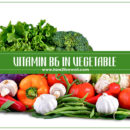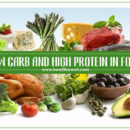How to Balance Your Diet: Proteins, Fats, and Carbs
Dieting can be confusing. High-protein diets claim to help you lose weight quickly, but can lead to high cholesterol and increase your risk for heart disease. High-carbohydrate diets may be low in fat, but can lead to high triglyceride levels, which cause hardening of the arteries (atherosclerosis).To add to the confusion, a new study published by the Journal of the American Medical Association concluded that people who eat very little protein and too much carbohydrate and fat will have more body fat and less muscle mass. So what does this all mean for you? Which diet is best?
Diet and Exercise
First, most of these diets don’t make any specific recommendations on physical activity. Exercise is an extremely important component to weight loss or maintaining weight. Routine exercise helps build muscle mass and gives you more energy. The Centers for Disease Control and Prevention (CDC) recommends 150 minutes (2.5 hours) per week of “moderate-intensity” activities as well as muscle strengthening exercises twice a week. “Moderate-intensity” activities can include brisk walking, jogging, or bike riding. Basically, you just want to sweat and increase your heart rate. Muscle strengthening exercise can include weight lifting, yoga, pushups, or sit-ups.
Load Up on Lean Protein
Once you increase your physical activity, you will need to make sure you consume enough protein to help build and repair muscles. It is recommended that you aim for 20-25% of your daily calories from protein. For a 2,000-calorie diet, this would be about 400-500 calories from protein (100-125 g) per day. Make sure to choose lean protein such as chicken, fish, beans, lentils, nuts, or non-fat milk. By choosing lean protein, you decrease the amount of fat you consume, which typically is the cause of high cholesterol and heart disease.
Choose Healthy Carbohydrates
Carbohydrates are also an important part of a balanced diet. While most diets recommend cutting back on carbohydrates, these foods actually provide you with the energy you need to keep going throughout the day. Aim for 45-60% of your daily calories to come from carbohydrates. For a 2,000-calorie diet, this is between 900-1200 calories (225 – 300g) per day. Choose “healthy” carbohydrates, such as fruit, vegetables, and whole grains. If you consume mainly refined grains (white bread, cookies, crackers, etc), then it may contribute to weight gain. Find carbohydrates that are high in fiber content, as this will keep you feeling fuller longer. Beans and legumes are also a good source of carbohydrates.
Limit Fat
Finally, limit your fat intake to 15-20% of your daily calories. You still need fat, just in small amounts. Choose “healthy” fats (unsaturated fats) that can help keep your cholesterol within normal limits. These can be found in olive oil, canola oil, nuts, avocados, and fish. Try to limit your intake of sweets (junk food), since these fats tend to have more saturated fat which can lead to heart disease and high cholesterol.
In conclusion, all fad diets may work to some extent. However, each has its own possible side effects that could affect your overall health. Try to find a nice balance between all the food groups (fruit, vegetables, protein, carbohydrates, and dairy). Start exercising a little each day, and you will find out how quickly 150 minutes adds up.







